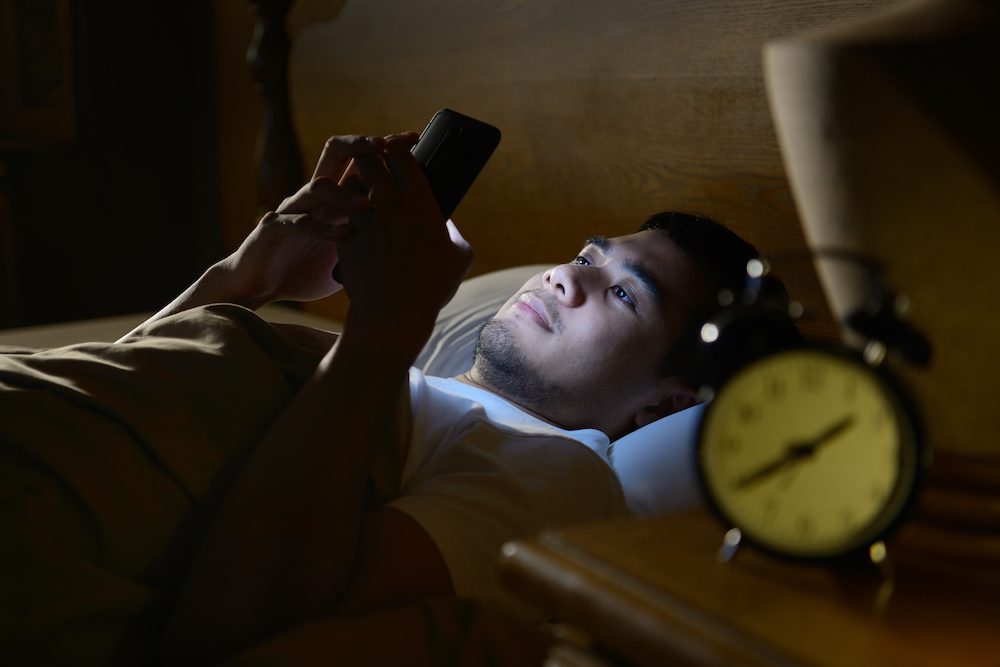Do you have a hard time sleeping while sharing the bed with your partner? Perhaps you just got into a new relationship and are sleeping with a new bed partner, or perhaps you and your long-term partner’s sleep patterns have changed. Whatever the reason, getting used to someone else in your bed can be a challenge and may leave you feeling unrested in the morning.
Good sleep is vital for both partners’ health as well as your relationship; poor sleep can hurt both. Let’s take a look at what you can do to solve the problem.
Benefits of Sharing a Bed With a Partner
Even though people tend to get worse sleep when they begin sharing a bed with a new partner, there are many benefits to sharing a bed with someone. According to some studies, many couples report experiencing better sleep with their partner than they do alone. While sharing a bed can be romantic, some potential benefits include:
- Better sleep quality
- Increased energy
- Falling asleep faster
- Stronger relationship
- Better mood
- Improved overall health
Sleeping with a partner may promote better quality sleep by helping you feel more calm, secure, and comfortable both in your environment and in your relationship. Deeper sleep can also help improve your mental health and mood, increasing you and your partner’s ability to communicate and regulate emotions. This is likely tied to the release of oxytocin, which is produced during feelings of intimacy and happiness.
Why Sharing a Bed May Be Difficult
Sharing a bed with another person is a very personal, intimate experience, and if you’re used to sleeping alone, this may be a significant adjustment period. A few ways one person can disrupt another’s sleep include:
- Loud snoring
- Tossing and turning, or moving a lot in bed
- Different temperature preferences
- Different sleep cycles or schedules
- Additional kids or animals sleeping in the bed with you
Sharing a bed can be wonderful, but it does require some compromise. Since sleep deprivation can make both partners irritable, frustrated, and exhausted, it’s best to communicate openly and honestly about sleep issues as soon as possible.
Nine Tips for Better Sleep with Your Partner
If sharing the bed has gotten difficult or uncomfortable, don’t put up with it. Whether comfort or another person is the source of your sleep woes, there’s always a solution.
1. Get a Bigger Mattress
A full bed or a twin bed are cozy enough for one person, but they will probably be a little uncomfortable for two average sized adults. A queen-sized mattress is the most popular choice for couples because they give each person more space to sleep and move during the night.
Selecting a new mattress can be a daunting experience if you don’t know what exactly you’re looking for. Start your search with our list of the best mattresses for couples.
2. Solve Snoring Problems
Snoring is one of the most common problems between bed partners. A snoring bed partner can not only ruin your sleep, but loud snoring can be a sign that they may have nighttime allergies or an underlying sleep disorder like obstructive sleep apnea (OSA).
Some remedies you can try if your partner snores include wearing earplugs or using an ambient sound machine to block out the snoring. If you’re the snorer, try these options:
- Sleep on your side — this helps keep your airways open and helps reduce snoring.
- Use over-the-counter treatments such as nasal strips or dilators to open your nasal pathways.
- If you have nighttime allergies, decongest for better rest. I recommend rinsing with a saline solution before bed.
3. Sleep According to Your Own Schedule
Not every couple will have the same sleep schedule, especially if one person works outside of normal work hours. It’s also quite possible that you and your sleep partner are different chronotypes — one of you may be a morning person, while the other is more of a night owl. Your chronotype works closely with your circadian rhythm to determine your natural preferences for being awake and for being asleep.
Sleeping and going about your days according to your respective chronotypes can help you both stay well-rested and energetic, but this can be tricky if your chronotypes are polar opposites. It is possible to get a good night’s sleep on different sleep schedules though. The most important thing to do is to sleep according to your individual schedules, while being careful not to wake your partner as you enter or leave the bed.
Shop the Best Mattresses of 20244. Try Different Sleep Positions
The right sleep position can make a big difference when it comes to comfortably dozing off with your bed partner. What’s comfortable for you and your partner will vary, but it shouldn’t be too hard to find a comfortable position for you both to doze off in together.
Some believe that the body language associated with various sleep positions may be clues that a relationship is thriving, or even struggling. For example, sleeping close together may indicate you and your partner being close or comfortable with each other, while sleeping back to back could indicate underlying conflict.
However, this isn’t always the case. Two people sharing a bed may be comfortable in any number of positions, and just because you prioritize comfort over cuddling doesn’t mean that there are problems lurking below the surface. Work with your bed partner to see what positions are most comfortable for you both.
5. Communicate with your Partner
Communication is key in any relationship — this is also true for your sleeping arrangements. Leaving potential problems unresolved can build resentment and frustration, so if there’s anything that isn’t working with you and your partner’s sleep, talk to them about it.
Compromise may even be necessary. But don’t worry, finding a happy medium doesn’t have to be difficult. Stay vigilant and considerate of your partner’s sleep preferences, including temperature, sounds, and light in the bedroom. So long as you keep communication open and fair, you can both rest easy.
6. Make Your Bedroom More Sleep-Friendly
A few extra concessions in the bedroom can go a long way towards making you and your partner sleep well. Give some of these a try if you’re looking for options to make your sleeping environment even better:
- Consider using lighter sheets, a lighter duvet, or a lighter blanket on your bed. Two bodies generate a lot of heat — this can help make sure neither partner gets overheated.
- If both partners have opposite preferences for the duvet, consider using two separate covers — also called the Scandinavian sleep method.
- An eye mask is handy if your partner’s light usage — like reading before bed, device usage, or even outdoor light — may keep you awake.
- Ear plugs are handy for masking any noise from a snoring bed partner as well as any other ambient noise that can keep you awake.
7. Keep the Kids Out of the Bedroom
It’s a fact of life that as soon as your kids are old enough, they’ll want to sleep in the “big bed” with their parents. This is fine if it happens infrequently and everyone’s able to fall back asleep quickly — however, the parents’ bed should be for the parents.
Encouraging kids to sleep in their own separate bed will not only be better for your sleep health, but theirs too. Kids learning to fall asleep on their own and sleep independently from their parents tend to sleep better each night and be more pleasant during the day. This also helps them establish healthy sleep habits that’ll help them as they grow.
Keeping kids in their own beds is especially important if you have a new baby. An infant can still sleep in the same room as you, but to reduce any risk of sudden infant death syndrome (SIDS) you’ll want to have your baby sleep in a bassinet or crib rather than in the bed with you. Once they’re between 4 and 6 months old, you can begin sleep training them — this helps your baby learn to fall asleep by themselves, and stay asleep during the night.
8. See Your Doctor About More Serious Concerns
If you or your partner are experiencing frequent sleep disturbances, a doctor can help you rule out a sleep disorder. Sleep disorders can ruin the sleep of not only the affected sleeper, but their partner can sleep poorly as a result too.
Contact a sleep specialist or a sleep center near you as soon as possible to get tested and see what your treatment options are. Disorders like obstructive sleep apnea (OSA) or insomnia can contribute to a lot of physical and mental health issues, so the sooner you get treated, the better you’ll sleep.
9. Maybe It’s Time For a Sleep Divorce
Even if you and your partner are compatible in other ways, sometimes you may just struggle to sleep well together. It just happens, and you shouldn’t take it personally.
If this is the case, then perhaps a “sleep divorce” may be a good idea. But don’t worry, this isn’t as ominous as it sounds. Sleeping apart, even short term, can help improve you and your partner’s individual sleep and reset your sleep cycle if it’s been thrown off. Good sleep is vital not only for your individual health, but for your relationship’s health too.
While I always recommend addressing any sleep problems in the bedroom before resorting to different sleeping arrangements, this can be a helpful choice if you’ve exhausted other options.
Ask the Sleep Doctor
Have questions about sleep? Submit them here! We use your questions to help us decide topics for articles, videos, and newsletters. We try to answer as many questions as possible. You can also send us an email. Please note, we cannot provide specific medical advice, and always recommend you contact your doctor for any medical matters.




